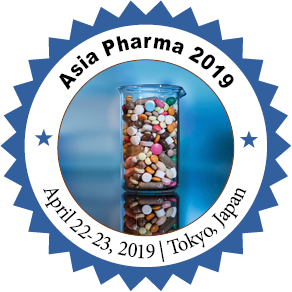
Sonia Shastri
University of Tasmania, Australia
Title: Therapeutic effect of idebenone in murine colitis
Biography
Biography: Sonia Shastri
Abstract
Idebenone, short chain quinone, has been described as a potent antioxidant and mitochondrial electron donor. Itstherapeutical potential has been described extensively in numerous pathological conditions ranging from neurodegenerative,neuromuscular to diverse metabolic conditions. There is also some emerging evidence that idebenone has some antiinflammatoryactivity. Oxidative stress is one of the key players of the inflammatory cascade responsible for the initiationof Ulcerative Colitis (UC). Therefore, we investigated the anti-oxidative and anti-inflammatory properties of idebenone indextran sodium sulfate (DSS)-induced mouse model of acute colitis. Acute colitis was introduced in female C57BL/6J mice by administering 2.5% of DSS in autoclaved water continuously for 7 days. Changes in body weight, Disease Activity Index (DAI),colon length and histopathological parameters were evaluated and scored. Colonic contents of Malondialdehyde (MDA), amarker of lipid peroxidation were also examined as a parameter of disease-associated redox state. Protein expression of theoxidative stress induced redox factor NAD(P)H dehydrogenase quinone-1 (NQO-1) was determined by western blot, while the levels of various pro-inflammatory cytokines were quantified using Bio-Plex assay. Oral administration of idebenone at a doseof 200 mg/kg body weight significantly against body weight loss, improved DAI, colon length and histopathology. Idebenone also significantly reduced MDA content as well as pro- inflammatory cytokine levels such as IL-1α, TNF-α, G-CSF, GM-CSF,MIP-1α, MIP-1β, RANTES and EOTAXIN; furthermore, idebenone upregulated NQO1 protein levels. These results suggest that idebenone could represent a promising therapeutic strategy to interfere with disease pathology in UC by inducing antioxidative and anti-inflammatory pathways.

